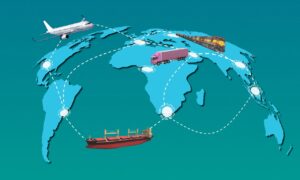2023 is off to a fast start, and logistics businesses will look to improve their positions this year. While global supply chain issues have abated to an extent, it’ll still likely be a tough year. Meanwhile, emerging technologies could prove disruptive for logistics. With all that in mind, Rodrigo Alonso Salas Musso covers what to expect in 2023.
“2022 was a challenging year for the logistics industry,” says Rodrigo Salas Musso. “Labor shortages hit shipping particularly hard, and bottlenecks at ports and elsewhere caused problems. Conditions are proving but expect 2023 to remain challenging.”
Logistics is a highly cyclical industry, and during the COVID-19 pandemic, many carriers and other parties could not simply meet high demand. This helped spur growth, especially for smaller and medium-sized providers. As the economy expands and consumers maintain or increase purchasing, demand for shipping solutions will likely remain high.
Still, global supply chains are beginning to normalize, and at least through the short-term, more major shutdowns caused by the COVID-19 virus are unlikely. Of course, conditions can change rapidly. However, there are some silver linings regarding the pandemic’s impact on shipping.
“The pandemic forced many logistics companies to prioritize efficiency,” Rodrigo Alonso Salas Musso notes. “Particularly, technology adoption was a high priority for many firms, and as things normalize, increased use of smart technologies should pave the way for more efficient global supply chains and shipping in particular.”
The logistics industry has generally been proactive regarding technology adoption. Increased efficiency and lower costs can help companies become more competitive. When large firms can improve operations, the cost savings can be tremendous. That said, excess capacity before the pandemic provided breathing room.
During the pandemic, excess capacity disappeared, and demand often far outstripped available resources within global shipping networks. Many carriers had to turn down shipments, and shippers often struggled to find space. Increased adoption of technology was thus a priority as it ensured available space was fully utilized and made it easier to track and handle shipments throughout the entire supply chain, reducing hiccups.
Rodrigo Alonso Salas Musso Discusses Artificial Intelligence
Global logistics involves a lot of moving parts. Multinodal logistics often means that goods are being transferred from carrier to carrier and require a lot of coordination. With space on carriers still being utilized at a high rate, there’s often minimal excess capacity. AI could help stakeholders coordinate and automatically analyze complex processes.
“Artificial intelligence could prove to be highly disruptive in logistics for many reasons,” says Rodrigo Salas Musso. “In particular, AI can monitor shipments automatically and raise red flags, say, a shipment that might end up delayed. With enough lead time, logistics companies can often adjust and reduce disruptions.”
That said, artificial intelligence is merely a tool, not a panacea. For the global logistics industry to continue to meet demand and evolve, folks on the ground are a vital resource. Further, while 2023 may prove challenging, many logistics companies will continue to step up.



































